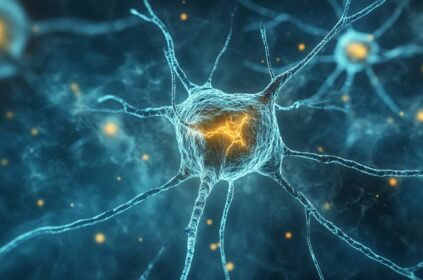Alzheimer’s disease, a significant neurodegenerative disorder, impacts millions of individuals, eroding memories and impairing daily functioning. With a steady rise in prevalence, understanding potential therapeutic options is vital. Recently, Delta-9 tetrahydrocannabinol (THC), a prominent compound in cannabis, has garnered attention for its possible benefits in alleviating Alzheimer’s symptoms and potentially slowing disease progression. This article delves into the relationship between Delta-9 THC and Alzheimer’s, exploring its neuroprotective properties, its effects on cognitive health, and its role in memory preservation.
Understanding Alzheimer’s Disease
Alzheimer’s disease is characterized by a gradual decline in cognitive function, leading to memory loss, confusion, and changes in behavior. As the disease progresses, it often results in severe limitations in daily life activities. Current treatments focus primarily on managing symptoms rather than curbing the disease’s progression, underscoring the urgent need for innovative therapies.
The Endocannabinoid System and Alzheimer’s
Central to the discussions around THC and cognitive health is the endocannabinoid system (ECS). The ECS regulates various physiological functions, including mood, memory, and appetite. In individuals with Alzheimer’s, the ECS often becomes dysfunctional, reducing endocannabinoid signaling. This impairment can exacerbate neurodegenerative symptoms such as cognitive decline, neuroinflammation, and oxidative stress.
Neuroinflammation is a hallmark of Alzheimer’s disease, characterized by an inflammatory response in the brain. It can lead to neuronal damage and negatively affect cognitive processes. Addressing this inflammation may hold the key to finding effective treatments.
Delta-9 THC’s Neuroprotective Properties
Research highlights several mechanisms through which Delta-9 THC may provide neuroprotective effects:
Reducing Amyloid Beta and Tau Phosphorylation
Delta-9 THC shows promise in reducing amyloid beta—a protein that accumulates abnormally in Alzheimer’s patients—and lowering tau phosphorylation, which contributes to the development of neurofibrillary tangles. These processes are critical as amyloid beta plaques and tau tangles are pivotal to Alzheimer’s pathology. Interestingly, research suggests that even ultra-low doses of THC can achieve these results without inducing psychoactive effects.
Enhancing Mitochondrial Function
Mitochondria are the energy-producing structures within cells. In Alzheimer’s patients, mitochondrial dysfunction plays a significant role in neurodegeneration. Delta-9 THC may help boost mitochondrial function, facilitating better energy supply to neurons and more effective signaling within the brain.
Anti-Inflammatory and Antioxidant Effects
The harmful effects of oxidative stress and chronic inflammation are central issues in Alzheimer’s disease. Delta-9 THC’s anti-inflammatory properties can help mitigate neuroinflammation, while its antioxidant effects protect neurons from damage. This dual action makes THC a compelling candidate for therapeutic interventions aimed at slowing the progression of Alzheimer’s.
Activating CB1 and CB2 Receptors
Delta-9 THC interacts with CB1 and CB2 receptors, which are part of the ECS. This interaction can promote neuroprotection, alleviating the negative impacts of pathological processes associated with Alzheimer’s. Research indicates that activating these receptors can enhance synaptic plasticity—the brain’s ability to adapt and form new connections—thereby improving memory and learning.
Impact on Cognitive Decline
Cognitive Improvement in Animal Models
Animal studies have demonstrated that low doses of Delta-9 THC can lead to improved cognitive performance in models of Alzheimer’s disease. For instance, a notable study found that administering ultra-low dose THC to mice with Alzheimer’s resulted in enhanced performance in spatial memory tests. This suggests that THC may play a role in counteracting some cognitive deficits linked to the disease.
Benefits of Combination Therapy with CBD
The potential pairing of THC with cannabidiol (CBD) is another promising area of research. Studies indicate that a combination of these cannabinoids may yield better cognitive benefits than either compound alone. For example, transgenic mice—an established model for Alzheimer’s—showed improved memory when treated with the THC and CBD combination compared to treatments involving just one of the cannabinoids.
Effects on Memory
Memory Protection and Enhancement
The ability of Delta-9 THC to combat Alzheimer’s-related changes positions it as a potential ally in preserving memory. By reducing the accumulation of harmful proteins and aiding mitochondrial health, THC can theoretically support memory retention and cognitive function.
Clinical Trials and Human Studies
While a significant amount of research has focused on animal models, some clinical trials involving humans have also shown promising results. For instance, a study administering synthetic Delta-9 THC (dronabinol) in patients with advanced Alzheimer’s and severe agitation indicated notable improvements in agitation symptoms within three weeks. Such findings pave the way for further exploration of cannabinoid therapies in human populations.
Practical Applications and Considerations
Microdosing
Microdosing Delta-9 THC—using very low, non-psychoactive doses—could be a viable strategy to access its beneficial effects without the risk of adverse reactions. This approach minimizes concern over THC’s psychoactive properties while still delivering therapeutic advantages.
Appetite Stimulation
A common symptom among Alzheimer’s patients is diminished appetite, which can lead to significant weight loss and malnutrition. THC is known to stimulate appetite by engaging CB1 receptors, which can foster hunger signals. This could improve nutritional intake and overall health for those struggling with weight issues.
Combination with Other Cannabinoids
Incorporating other cannabinoids, such as CBD or cannabinol (CBN), may amplify the therapeutic benefits. The “entourage effect,” where various cannabinoids work synergistically, suggests that a multi-cannabinoid approach could enhance effectiveness beyond individual compounds.
Conclusion
Delta-9 THC represents an exciting frontier in the ongoing battle against Alzheimer’s disease. Its neuroprotective properties and potential to improve cognitive function and memory are supported by emerging research. While the body of knowledge is still developing, the initial findings offer hope to those affected by this challenging disorder.
As the landscape of cannabinoid therapy evolves, it is crucial for patients and healthcare providers to remain informed about these advances. Consulting with healthcare professionals, considering microdosing strategies, and exploring combination therapies could lead to improved quality of life for individuals living with Alzheimer’s.
Actionable Tips
- Consult Healthcare Providers: Always discuss with healthcare professionals before initiating any cannabinoid therapy to assess potential benefits and risks tailored to individual health conditions.
- Microdosing: Consider microdosing strategies for Delta-9 THC to harness therapeutic effects while minimizing psychoactive side effects.
- Explore Combination Therapy: Investigate the benefits of using Delta-9 THC in conjunction with CBD and other cannabinoids to maximize potential health benefits.
- Stay Updated: Keep informed about the latest research and developments in cannabinoid therapy to make educated decisions regarding treatment options.
By considering the therapeutic potential of Delta-9 THC within a comprehensive care plan, individuals with Alzheimer’s disease may experience significant improvements in their cognitive wellbeing and overall quality of life.





















